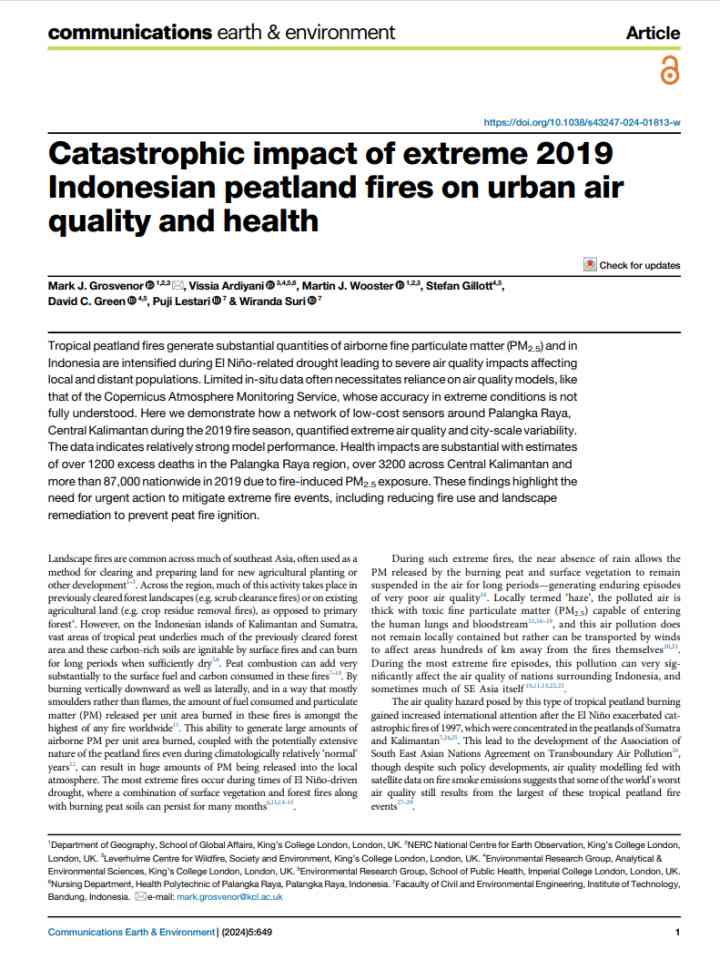Catastrophic impact of extreme 2019 Indonesian peatland fires on urban air quality and health
This study examines the substantial quantities of PM2.5 generated by tropical peatland fires in Indonesia, intensified by El Niño-related droughts, which severely impact air quality for local and distant populations. Due to limited in-situ data, air quality models like the Copernicus Atmosphere Monitoring Service are often used, though their accuracy under extreme conditions remains uncertain. This study demonstrates how a network of low-cost sensors around Palangka Raya, Central Kalimantan, quantified extreme air quality and city-scale variability during the 2019 fire season.
The data indicates relatively strong model performance. Health impacts are substantial with estimates of over 1200 excess deaths in the Palangka Raya region, over 3200 across Central Kalimantan and more than 87,000 nationwide in 2019 due to fire-induced PM2.5 exposure.
Explore further
